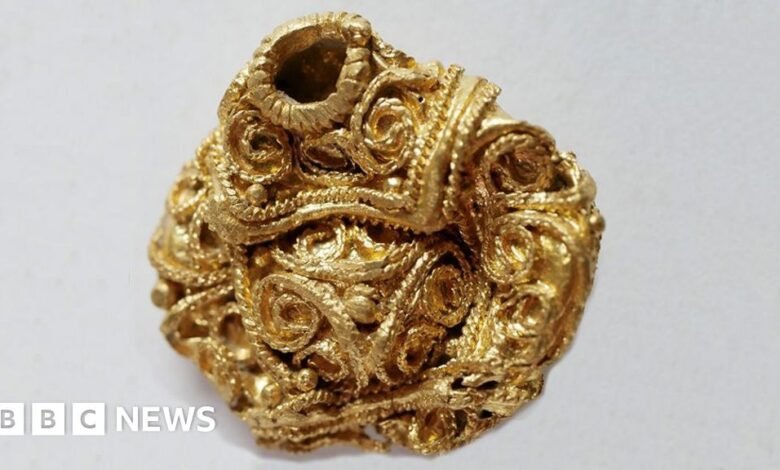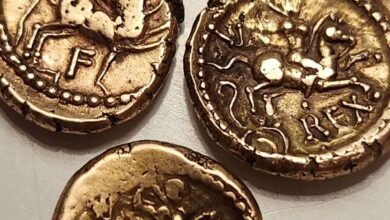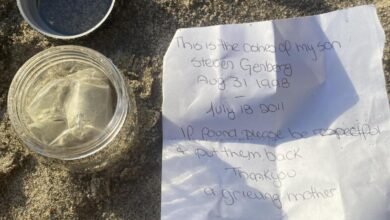Lancaster metal detector finds treasure in Cumbrian field

image source, Jacob Purdie
- Author, Francesca Williams
- Role, BBC North East and Cumbria
A crushed, muddy piece of jewelry unearthed in a field has been found to be more than 400 years old and has been officially declared a treasure.
Jacob Purdie, from Lancaster, found the gold pinhead while metal detecting in a field in Burton-in-Kendal in Cumbria last year.
It was deemed treasure by the county coroner in December and is now awaiting appraisal.
Mr Purdie, 30, said: “I have put a lot of effort into my metal detecting. I take it very seriously and I enjoy building my collection.”
The Lancaster Docks shipowner was introduced to the hobby by a friend.
On his first try he found “two balls and a button” and now goes out every day after work.
Last year, in quick succession, he discovered the filigree gold pin head and a Quarter Noble – a rare hammered gold coin.
image source, Jacob Purdie
Individual gold coins are not considered treasure, so Mr. Purdie paid the landowner half their value and kept them.
The pinhead is believed to date back to the 16th century and, as it is made of gold and is more than 300 years old, is considered treasure under the Treasure Act 1996.
Mr Purdie said as soon as he saw it he knew it was very old.
“I just knew I had to report it immediately — I reported it the same day,” he said.
The Treasure Valuation Committee is currently reviewing the value of the find and museums have been notified if they wish to purchase the find.
image source, Jacob Purdie
Mr Purdie said the pinhead was a “rare find” but his motivation was not money.
“It’s just the story – I live for it,” he said.
His mother was also interested in history, but his father was always curious about the value, he said.
“It makes no difference to me how much things are worth.
“If I ever need the money, I certainly won’t sell my collection.”
image source, Jacob Purdie
What to do with old finds:
- Find out if it could be treasure
- Report potential treasure to the local coroner within 14 days of discovery or knowledge that it may be treasure
- Other items can be reported to the Portable Antiquities Scheme
- An investigation will determine whether it is treasure and then an expert will determine its value
- Museums will be notified if they wish to purchase it
- If this is the case, the finder and the property owner split the payment 50/50, but the finder must have had permission to search
- If it is not purchased, the finder keeps it and can sell it privately



